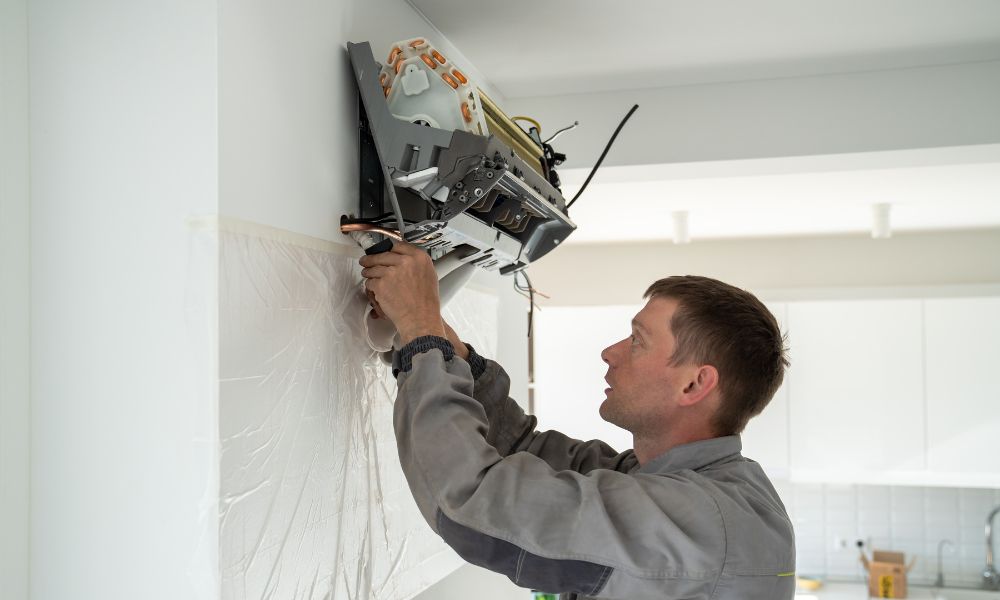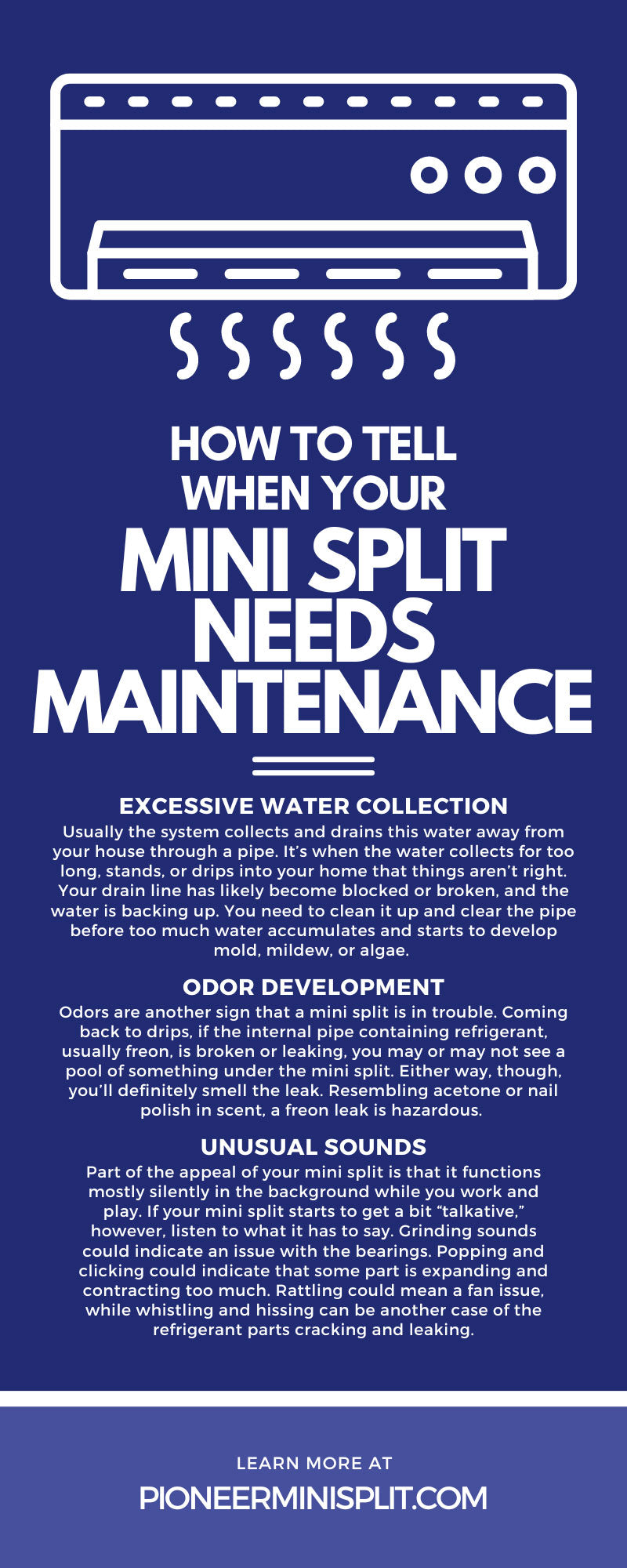
Mini split air conditioning is a delightful thing. Whether it’s too hot or too cold outside, it can help adjust the temperature and comfort level in any room. If you clean and maintain it regularly, you can expect years of use and pleasant temperatures. But even the best mini split units can slow or break down for various reasons, especially if you don’t give them proper care or attention. Here’s how to tell when your mini split needs maintenance. Staying on top of trouble is a good way to ensure yours runs perfectly for a long time.
Hindered or Halted Functioning
One of the more obvious ways to tell your mini split needs help is if it simply doesn’t work. If there’s little to no airflow, that might be a sign of several issues. In the best case scenario, something is blocking the filter, and you’ll need to remove and clean it or replace it to allow the air to go in and out. A lack of airflow, however, can indicate a more serious problem, such as a broken part, a severe leak, or an issue with the compressor. If the filter isn’t the issue, contact a professional to come and look at it. They may even notice a simple fix like ensuring the system isn’t blocked or improving the flow of air in your home. Once they make the repair, it won’t have to work quite so hard.
Excessive Water Collection
The air around us is full of water. We can’t see it (unless it’s foggy or misty), but it’s there. When your mini split cools down the air around it, the water in the air can condense, collect, and even drip from it. Hot, muggy, and humid days might increase this process. Now, usually, the system collects and drains this water away from your house through a pipe. It’s when the water collects for too long, stands, or drips into your home that things aren’t right. Your drain line has likely become blocked or broken, and the water is backing up. You need to clean it up and clear the pipe before too much water accumulates and starts to develop mold, mildew, or algae. Call a professional to look it over.
Odor Development
Odors are another sign that a mini split is in trouble. Coming back to drips, if the internal pipe containing refrigerant, usually freon, is broken or leaking, you may or may not see a pool of something under the mini split. Either way, though, you’ll definitely smell the leak. Resembling acetone or nail polish in scent, a freon leak is hazardous. Call a professional immediately. If you catch the whiff of used gym socks from your mini split, there may be mold in it or your home’s walls. On the other hand, a burning smell may indicate something is wrong with its electrical components. It may have a bad wire, an insulation problem, or a burned-out compressor, for example. Your mini split may require a deep cleaning or even new parts in these instances, so it’s best to shut it down and call the pros.
Unusual Sounds
Part of the appeal of your mini split is that it functions mostly silently in the background while you work and play. If your mini split starts to get a bit “talkative,” however, listen to what it has to say. Grinding sounds could indicate an issue with the bearings. Popping and clicking could indicate that some part is expanding and contracting too much. Rattling could mean a fan issue, while whistling and hissing can be another case of the refrigerant parts cracking and leaking. Whatever’s happening, make a note of it and alert the technician. Don’t be shy about describing the sounds. They’ve literally heard it all.
Failure in the Cold
When the temperature drops, your mini split can sometimes bring the heat if it has a heat pump. But if the temps get too low, the weather might be too much for the heat pump to keep up with. That said, when the weather’s a bit chilly and the mini split refuses to work, you should check outside. If snow or ice covers the mini split, it must work three times as hard to keep on top of the temps. Cold temperatures can freeze the fan in place, and water can sometimes leak in, freeze, and stop the whole works. Potentially, the coils on your mini split can freeze and crack, and that’ll cost you dearly. If you’re cold, your mini split system is also cold, so help it warm up by keeping the snow and ice off.
Utility Bill Increase
Are your electricity and other utility bills inexplicably rising? It may be that your mini split system isn’t running properly and is using way more energy than it should be. The problem may not be immediately obvious in this case, lacking sounds and funny smells. It could have clogged filters or dirty coils, or the system may just need a little extra TLC. Keep to a regular cleaning and maintenance schedule, and your mini split should run well. But if you note any slippage on air quality and higher bills, bring in a professional for a full check up and possible deep cleaning. Most issues are readily apparent to an experienced professional.
What’s Next?
We’ve addressed how to tell when your mini split needs maintenance, but you may be wondering if there’s anything more you can do to improve things. Keeping things clean is a big one. Removing anything in a room that may be stopping the airflow or making the mini split stress and strain itself is also important. Get a checkup, and ask you technician if there’s anything else you can do to help your mini split do its job!
Need help cooling down or warming up your space? Contact us for a consultation. We’re the mini split experts, and we know everything about mini splits, including inverter split systems and others. We look forward to hearing from you!





